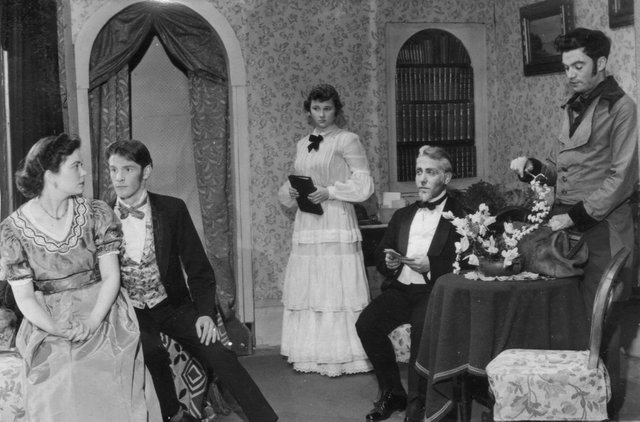A philosophical review of Fathers And Sons by Ivan Turgenev

We are fated, it seems, to outgrow our priors and be outgrown by our successors. Each generation makes the same error in thinking it will not be so, and each generation is bitterly disappointed.
This ceaseless march of progress, however, is also cyclical. It is cyclical at the scales of civilisations, as each civilisation seems to take it’s full arc to realise the same things that the previous civilisation had already achieved, whilst at the same time building upon it’s achievements and venturing into the new. But it is also cyclical generation to generation.
Fathers And Sons is about the generational progressive cycle.
Our protagonist (or more antagonist) is Bazarov, a cynical depressive who expresses nihilistic views but seems keen to adhere to them only as and when is convenient. He is a doctor, a botanist, a vivisectionist, a zoologist and much more besides. Bazarov is presented as a sort of materialist’s culmination and embodiment. Holding no views (except in opposition), rebelling against everything seemingly for the sake of it, and alienating everyone until the only remaining one to alienate is himself, which he promptly achieves by dissecting a typhoid victim and dying of the same disease through intentional incompetence.
We could take from this that materialism is bad, that it is the enemy, that it leads nowhere and achieves little. But we would be mistaken.
The products of materialism are self-evident. They further our scientific endeavours and increase our quality of life discovery by discovery, invention by invention. The empirical method, applied universally, is the rock upon which some of the most productive human beings who have ever lived rested, and it is thanks to it that we have so much of that which we take for granted in life.
By comparison we have romanticism, the idle appreciation of the finer details of life. Revelling in beauty, fleeting temporality, and the many graces of God which we are granted, as we sit in our country estates, eating three square meals, surrounded by peasants who die of cholera (and if you’re not getting the analogy, that’s the west, surrounded by the third world, upon which we are still dependent for our exploitations to prop up our standard of living).
Turgenev is no rosey idealist though. The peasants are snide, superstitious, inefficient, greedy, generally incompetent and seemingly unwilling to improve themselves, and so although their aristocratic (often of a petty form) lives are only made possible by the exploitation of peasants, it’s hard to have too much sympathy for them, all things considered.
Instead the aristocrats, who in turn are divided into their classes and sub-classes, their schools and societies, their degrees of refinement and education, their varying competences, wile out their days gambling, gardening, taking walks, and drinking themselves to death. Can we despise them? Some of whom care not a jot about the majority as they indulge themselves. Some of whom provide free medical care to their peasants and have moved them onto the rent system, which apparently is by some degrees fairer (I can imagine in the way freed slaves became rentee farmers in the American South after the civil war).
The fathers consider themselves progressives, and as they have peasant boys fan away the flies at dinner they struggle to adjust to these fairer systems because the peasants don’t work as hard, avoid paying rent, and generally take as much as they can get without giving anything back. The fathers are troubled with all sorts of logistical, managerial, and economic issues which they are quite stressed about, but given a little application of themselves to the matter they can overcome and maintain their living standard.
The sons concern themselves with loves and enjoyments, decrying old ways and rebelling against old thoughts, without any practical offering of how exactly to implement their values as the last generation (conservative and repugnant as it is) is struggling to get their progressive values simply to work at all.
We are the sons, we are the fathers. We are idealists, and when faced with the realities we make concessions, both for the sake of our own comfort, and because of the universal fact that those we wish to help frequently despise us and often don’t want to be helped and, in fact find the idea of us helping them rather insulting.
Well, I guess we should continue, having children, aspiring to ideals, and eventually settling on something not perfect, but functional, and not too uncomfortable either, if we can manage it.